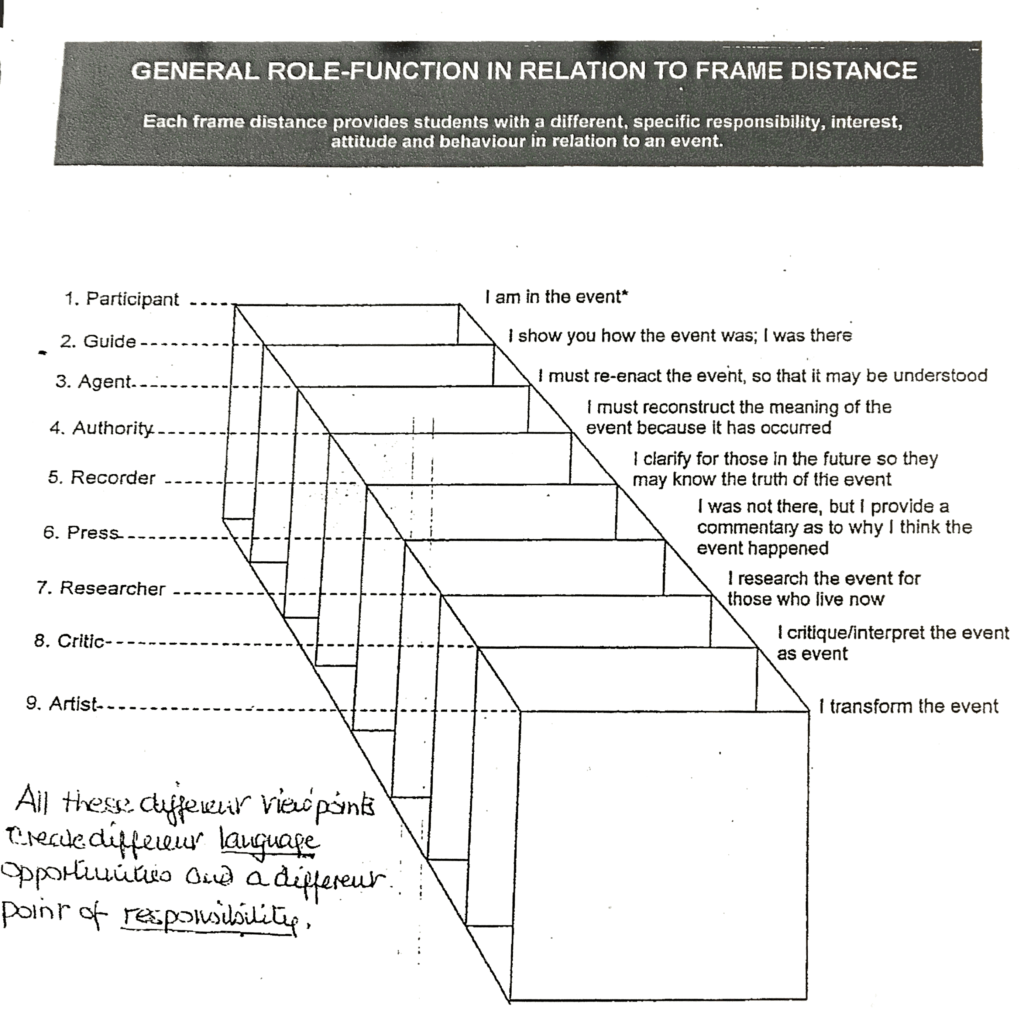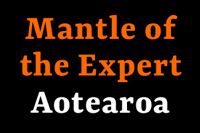Frame distance

Frame distancing is a very helpful concept to understand when working with drama, particularly if the content area to be explored is tricky or sensitive in some way. Frame distance provides a way of thinking about the different functions or points of view of roles and how these can provide ‘distance’ or ‘proximity’ to an event or issue.
If you think about it, every role we adopt carries with it an implied viewpoint, a set of interests, an attitude to what takes place. This is true in life and in classroom drama. A soldier fighting in the trenches has a different perspective to the action from that of a commander watching the fighting from the hillside. Different again is the perspective of the soldier’s family waiting for news or a historian looking back at the battle through the distance of time.
The frame distance tool above shows which roles will bring participants closer to the action and which might provide more distance and therefore more safety. Note that the degree of distance does not necessarily imply more or less emotional involvement – closer is not necessarily ‘better’. Indeed, often the more distanced roles provide a sense of safety so that participants can be ‘protected into feeling’ (Bolton). Choosing distanced roles can also be a way of expressing respect for culturally significant subject matter.
The frame distance tool is useful for teachers during planning for Mantle of the Expert, process drama, drama for learning or devising to help them select appropriate roles for participants. The tool can also be used to help select the best perspective for a teacher in role. The tool can also help a teacher plan an activity in which an issue is explored from multiple perspectives with participants invited to take on first one role and then another.
For more on Frame distance, see Bowell and Heap’s excellent book Planning process drama (2002) .
References;
- Bolton, G. (1984). Drama as Education: An argument for placing drama at the centre of the curriculum. Longman.
- Bowell, P., & Heap, B. (2002). Planning process drama. London: Fulton.
- Heathcote, D. (2009). Mantle of the Expert: My current understanding. Weaving Our Stories: International Mantle of the Expert Conference, University of Waikato, Hamilton, New Zealand.

Leave a Reply
Want to join the discussion?Feel free to contribute!